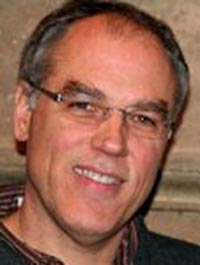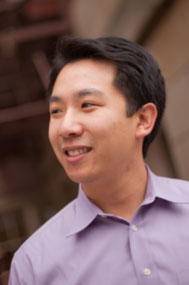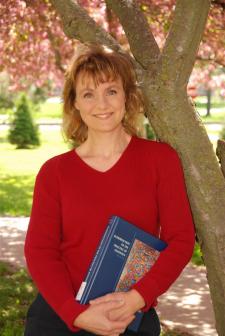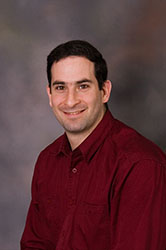Jim Stigler, UCLA
"Teaching for Understanding: What Will It Take?"
Abstract
What does it mean to understand statistics? And how can we teach for understanding? In this talk I will address these questions, drawing both on my own cross-cultural research on mathematics teaching and learning, and more generally on research from the learning sciences. After discussing what we mean by understanding, and why it’s important, I will propose three kinds of learning opportunities students need in order to develop understanding: productive struggle, explicit connections, and deliberate practice. The audience will help me connect these ideas to the domain of statistics (thanks in advance!).About the speaker
 Jim Stigler is Professor of Psychology and Associate Dean of Social Sciences at UCLA. He directed the TIMSS video studies and is co-author of two popular books: The Teaching Gap (with James Hiebert, Free Press, 1999) and The Learning Gap (with Harold Stevenson, Simon & Schuster, 1992). He received his A.B. from Brown University in 1976, a Masters in Education from the University of Pennsylvania in 1977, and a Ph.D. in Developmental Psychology from the University of Michigan in 1982. Dr. Stigler is best known for his observational work in classrooms, and has pioneered the use of multimedia technology for the study of classroom instruction.
Jim Stigler is Professor of Psychology and Associate Dean of Social Sciences at UCLA. He directed the TIMSS video studies and is co-author of two popular books: The Teaching Gap (with James Hiebert, Free Press, 1999) and The Learning Gap (with Harold Stevenson, Simon & Schuster, 1992). He received his A.B. from Brown University in 1976, a Masters in Education from the University of Pennsylvania in 1977, and a Ph.D. in Developmental Psychology from the University of Michigan in 1982. Dr. Stigler is best known for his observational work in classrooms, and has pioneered the use of multimedia technology for the study of classroom instruction.
Roger Peng, Johns Hopkins University
"The Role of MOOCs at the University: A Case Study with the Johns Hopkins Data Science Specialization"
Abstract
Since the rapid rise of massive open online courses in the public consciousness over 2 years ago, there has been much discussion both inside and outside academic circles of what role MOOCs should play at the university. In particular, there has been discussion of whether the business model can be successful, both for content providers and platform providers, and the extent to which MOOCs can reach an audience that is orthogonal to the University’s current audience. The Johns Hopkins Data Science Specialization is a 9-course sequence offered through Coursera by the Department of Biostatistics at Johns Hopkins. Created by three Biostatistics faculty members, it launched in April of 2014 and through December 2014 enrolled a cumulative 1.5 million people. We will discuss the motivation and rationale for creating the series, the design philosophy for the courses and the capstone project, and highlight some successes to date. We will also draw some lessons from the course series thus far and implications for the role of MOOCs at universities more generally.
About the speaker
 Roger Peng is Associate Professor in the Department of Biostatistics at Johns Hopkins Bloomberg School of Public Health. He received a B.S. in Applied Mathematics from Yale and an M.S. and Ph.D. in Statistics from UCLA. His research interests include statistical methods for air pollution exposures, assessing the health effects of climate change, and computational methods for reproducible research. Dr. Peng and his colleagues have developed a data science program offered through Coursera and write the Simply Statistics blog (simplystatistics.org)."
Roger Peng is Associate Professor in the Department of Biostatistics at Johns Hopkins Bloomberg School of Public Health. He received a B.S. in Applied Mathematics from Yale and an M.S. and Ph.D. in Statistics from UCLA. His research interests include statistical methods for air pollution exposures, assessing the health effects of climate change, and computational methods for reproducible research. Dr. Peng and his colleagues have developed a data science program offered through Coursera and write the Simply Statistics blog (simplystatistics.org)."
Shonda Kuiper, Grinnell College
"Making Statistics Relevant in a Data-Rich Society"
Abstract
In our data-rich society, making decisions with data is becoming an essential skill in almost any area of study. Major media outlets have shown evidence of this growing need for data analysis and there has been tremendous growth in enrollments in AP statistics, college statistics enrollments, statistics minors, concentrations and majors. However, at many levels, the statistics curriculum is not representative of actual statistical work. Even after taking a statistics class, many people struggle to connect what they have learned to their own fields. Carefully curated datasets that are brought into the statistics classroom may not feel “real” to students. The result is that core statistical issues such as working with messy data, bias, data relevance and reliability tend to be taught as abstract ideas instead of core concepts essential to every study involving data. We will discuss activities that can be incorporated into traditional statistics courses to prepare the next generation to “think with data” by having them work with real-world, unstructured datasets and train them to better communicate nuanced statistical ideas.
About the speaker
 Shonda Kuiper is an Associate Professor in the Department of Mathematics and Statistics at Grinnell College. She served in leadership roles for the Iowa Chapter of the ASA, the Isolated Statisticians and as chair for the ASA/MAA Joint Committee on Undergraduate Statistics. Dr. Kuiper received a National Science Foundation grant to develop her textbook, Practicing Statistics: Guided Investigations for the Second Course, which focuses on bringing interdisciplinary research into the classroom. She is currently working through two additional NSF grants to develop laboratory modules using Web-based games that teach statistical thinking and the process of scientific inquiry. This work has led to the development of Stat2Labs, an educational website that earned a MERLOT Classics Award in 2012.
Shonda Kuiper is an Associate Professor in the Department of Mathematics and Statistics at Grinnell College. She served in leadership roles for the Iowa Chapter of the ASA, the Isolated Statisticians and as chair for the ASA/MAA Joint Committee on Undergraduate Statistics. Dr. Kuiper received a National Science Foundation grant to develop her textbook, Practicing Statistics: Guided Investigations for the Second Course, which focuses on bringing interdisciplinary research into the classroom. She is currently working through two additional NSF grants to develop laboratory modules using Web-based games that teach statistical thinking and the process of scientific inquiry. This work has led to the development of Stat2Labs, an educational website that earned a MERLOT Classics Award in 2012.
Michael Posner, Villanova University
"Statistics Education Research: It Takes a Village"
Abstract
What connects us all is our passion for teaching. Yet the classroom skills we possess, the teaching styles we employ, and the environments in which we teach are not common among us. While this disconnect is often absent in our communal discourse, it offers us the opportunity, if not the obligation, to apply the skills of our statistics trade to determine which pedagogical strategies are most effective in each of our unique classrooms. In addition, statistics curricula are shifting underneath our feet, expanding the material to be taught in even our introductory classes and requiring us to distill statistical thinking into essential elements. In this plenary, Dr. Posner will not only describe the successes and failures in his research in statistics education, but share the processes, methods and resources he uses to effectively identify successful strategies for teaching statistics. Hopefully, you will leave inspired to participate in statistics education research, be it in pedagogy in your classroom or curricula reforms on a global scale.
About the speaker
 Dr. Michael Posner (http://www07.homepage.villanova.edu/michael.posner/) is an Associate Professor of Statistics at Villanova University, where he has been since 2005 after completing his Ph.D. in biostatistics at Boston University. His publications and research span the fields of statistics education research, biostatistics, public health, health care research, statistics and the law, educational research, and analysis of observational studies. Dr. Posner is the Associate Director for Professional Development for CAUSE, is on the Executive Committee of the Section on Statistics Education for the ASA, and is the past-chair of the Special Interest Group of the MAA for Statistics Education. His research has been funded by the National Science Foundation, the Agency for Healthcare Research and Quality, and the Villanova Center for Nursing Research. Dr. Posner has won the 2010 Villanova University Faculty Award for Innovative Teaching, the MAA's 2012 Alder Award for Distinguished Teaching, and the ASA's 2012 Waller Education Award. He is the founding director of the Center for Statistics Education, a Center for Excellence in the College of Liberal Arts and Sciences at Villanova University.
Dr. Michael Posner (http://www07.homepage.villanova.edu/michael.posner/) is an Associate Professor of Statistics at Villanova University, where he has been since 2005 after completing his Ph.D. in biostatistics at Boston University. His publications and research span the fields of statistics education research, biostatistics, public health, health care research, statistics and the law, educational research, and analysis of observational studies. Dr. Posner is the Associate Director for Professional Development for CAUSE, is on the Executive Committee of the Section on Statistics Education for the ASA, and is the past-chair of the Special Interest Group of the MAA for Statistics Education. His research has been funded by the National Science Foundation, the Agency for Healthcare Research and Quality, and the Villanova Center for Nursing Research. Dr. Posner has won the 2010 Villanova University Faculty Award for Innovative Teaching, the MAA's 2012 Alder Award for Distinguished Teaching, and the ASA's 2012 Waller Education Award. He is the founding director of the Center for Statistics Education, a Center for Excellence in the College of Liberal Arts and Sciences at Villanova University.
